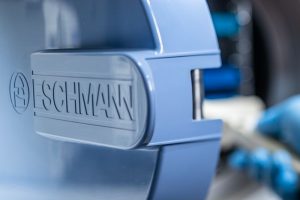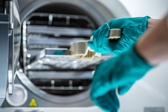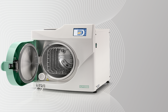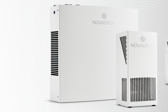Categories
Most Recent
Optimising performance and patient safety
27th Mar 2024 in Dental, Animal Health, HealthcareDental equipment maintenance, an expense or an investment?
There aren’t many people who drive their car into the ground or let it run out of fuel and simply abandon it and buy a new one. They are an expensive purchase and most motorists know that maintaining the vehicle will keep it running as well as save them money in the long run.
It’s the same for the maintenance of dental equipment which is vital for any dental practice. Regular maintenance not only enhances the durability and longevity of the equipment but also ensures the safety and well-being of patients. Correct maintenance is therefore a crucial aspect of providing high-quality and reliable dental services. It’s also a regulatory requirement, much like a car’s MOT and insurance. Regular upkeep decreases the likelihood of malfunctions or accidents that may harm the patient.[i]
Proactive approach
Just like your car or any other mechanical device, dental equipment is prone to wear and tear over time. Routine maintenance – like your car’s annual service[ii] – helps identify and rectify issues before they turn into major problems. Some service providers will issue advisories. This proactive approach prevents sudden breakdowns during dental procedures, which can cause inconvenience and compromise patient care as well as prove costly for the practice.
So, what does a good maintenance service look like? It sounds obvious but at the most basic level, you need to make sure there’s a clear description of the services you’re going to receive, with zero ambiguity.[iii] When your piece of equipment fails, the last thing you need is to discover the contract doesn’t cover the issue.
The top features of a quality maintenance service contract are:
- Reliability: You need to be able to rely on, and trust, the service delivered and have confidence in the provider’s ability. The service should be performed efficiently, minimising downtime, maximising productivity and guaranteeing legal compliance. Regular testing of pressure vessels is a legal requirement for every dental practice to comply with Pressure Systems Safety Regulations 2000 and Provision and Use of Work Equipment Regulations 1992.[iv]
- Expertise: Qualified and skilled maintenance technicians should be assigned to perform the service. They should possess a thorough understanding of the equipment they are working on and have the necessary training to effectively maintain and repair it. Technicians of the OEM (original equipment manufacturer) for example, are often a good choice. The maintenance service should be comprehensive, covering all necessary tasks and inspections. This includes routine preventive maintenance, regular calibration, cleaning, lubrication, and any necessary repairs.
- Documentation: Accurate and thorough documentation of Validation Reports, Pressure Vessel Reports and maintenance activities, including the work performed, parts replaced, and any recommendations for future maintenance or upgrades, should be provided.
- User Training: Enhanced CPD on the day-to-day care and testing of the equipment should be provided.
- Safety: The service should prioritise the safety of both the maintenance technicians and the equipment users. Standards and protocols for safe maintenance procedures should be followed, and any potential safety hazards or risks should be identified and addressed.
Correct maintenance of dental equipment ensures a smooth workflow and productivity in the practice.[v]When equipment is in excellent condition, dentists and the dental team can focus on delivering dental care without interruptions or delays caused by equipment malfunctions.
Infection control
 Additionally, dental equipment maintenance plays a key role in infection control.[vi] Meticulous cleaning, disinfection, and maintenance of dental equipment are crucial for preventing the transmission of infectious diseases.
Additionally, dental equipment maintenance plays a key role in infection control.[vi] Meticulous cleaning, disinfection, and maintenance of dental equipment are crucial for preventing the transmission of infectious diseases.
Compliance with industry regulations is another significant reason for dental equipment maintenance. The CQC says that all dental equipment must be used, stored and maintained in line with manufacturers’ instructions. It should only be used for its intended purpose and by the person for whom it is provided (Guidance on 15(1)(d) and 15(1)(e)).[vii]
Maintaining and servicing decontamination equipment appropriately is essential to ensure that equipment performs to an optimum standard. This should be done in accordance with the manufacturer’s instructions.
Eschmann Care & Cover gives dental professionals peace of mind that their decontamination equipment is fully compliant with HTM01-05[viii] and SDCEP guidance, while providing full technical support through a nationwide team of Eschmann engineers. With no hidden charges, Eschmann Care & Cover includes Manufacturer’s Annual Validation and Pressure Vessel Certification (PSSR), unlimited breakdown cover (including call-outs, parts and labour), as well as annual Enhanced CPD User Training for staff.
The importance of dental equipment service and support cannot be overstated. By investing in regular maintenance, dental practices can minimise downtime and ensure optimal performance. Taking proactive steps to maintain dental equipment not only benefits the dental practice but also contributes to providing excellent and reliable dental care to patients.









